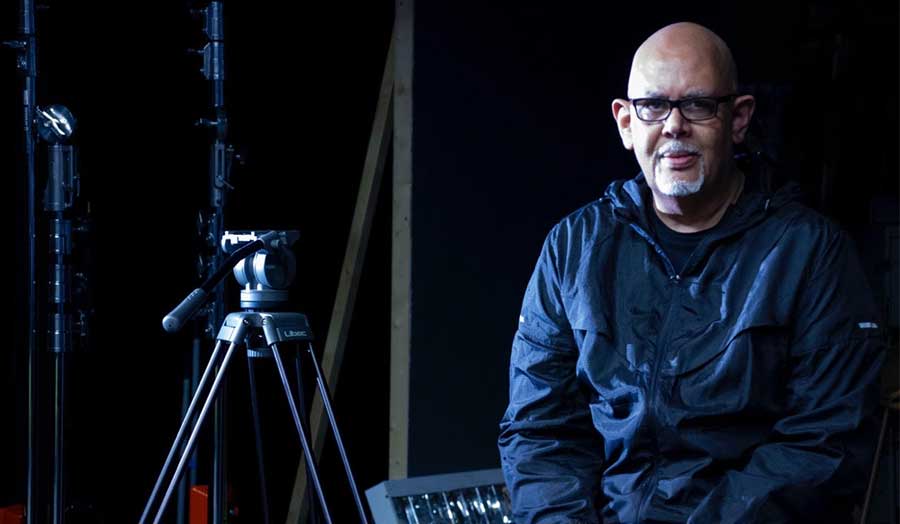Apply for this course
Please select when you would like to start:
If you're a UK applicant wanting to study full-time starting in September, you must apply via UCAS unless otherwise specified. If you're an international applicant wanting to study full-time, you can choose to apply via UCAS or directly to the University.
If you're applying for part-time study, you should apply directly to the University. If you require a Student visa, please be aware that you will not be able to study as a part-time student at undergraduate level.
Why study this course?
The Theatre and Film BA merges cinematic and performance languages, explored through practice and theory. Develop the skills required for successful employment opportunities within the international film and television industries, and within theatre and performing arts.
Join a group of high-achieving alumni
Our graduates have won awards in film festivals including Cannes, starred in BBC and CBS series, formed acclaimed theatre and film production companies across the globe and featured in long-running West End shows
Second in the UK for student satisfaction
Our drama, dance and cinematics courses ranked second in the UK for student satisfaction in the Complete University Guide 2025
Collaborate with famous industry names
London Met’s theatre and film courses enjoy world-class collaborations with internationally acclaimed organisations such as Tate Modern, the National Theatre, the Royal Court and Istituto Teatrale Europeo in Rome
Course modules
The modules listed below are for the academic year 2024/25 and represent the course modules at this time. Modules and module details (including, but not limited to, location and time) are subject to change over time.
Year* 1 modules
Year 2 modules
Year 3 modules
Devising
This module currently runs:all year (September start) - Monday morning
(core, 30 credits)
This module aims to expose students to the skills and strategies necessary for devising performance. Students will engage in practical exploration and debate the content and forms of individual and group devised contemporary theatre practice. Through this they will work with improvisation techniques in the development of original interdisciplinary material towards the creation of ensemble devised performance. Students will negotiate and analyse the process of collaboration towards building knowledge and ability in working inclusively, discursively and proactively in diverse collaborative environments.
Read full detailsMoving Image Practice
This module currently runs:autumn semester - Monday afternoon
(core, 15 credits)
This is a highly creative and practical module which will introduce students of differing abilities to each of the fundamental stages of moving image (digital video) production, from development to filming to post-production, through a variety of weekly studio-based practice workshops and classroom exercises.
You will learn how to develop and pitch a short film based on study of genre and film style theory, how to prep your shoot through the use of storyboards and pre-production research, and then shoot and edit your project through knowledge of filmmaking acquired during the module.
The key skills and knowledge you will be expected to acquire and develop are:
• Understanding of moving image practice through the study of key filmmaking theories and principles such as visual composition, genre and film style (mise en scene, cinematography and editing)
• Understanding of digital video production techniques through study and practical workshop use of camera, lighting and editing technologies
• Understanding and experience of different production roles (director, producer, cinematographer, editor) and collaborative filmmaking through working in small film project groups
• Understanding and experience of professional industry methodology which will provide you with a range of potentially employable skills upon graduation
• Understanding and development of communication skills through learning how to present a film pitch, collaborative teamwork and critical reflection
Read full detailsObjects, Image and Design
This module currently runs:all year (September start) - Thursday morning
(core, 30 credits)
This is a year-long module that will introduce students of BA Theatre & Performance and BA Theatre & Film to performance aesthetics through a range of small scale projects drawing on activities such as abstract renderings and object work. You will learn craft-based skills that will be utilised and developed throughout your course of study and investigate and experiment with the use of objects in regard to narrative, character and theme. This will be complemented with sound and lighting workshops to enable you to understand the process and practice of construction in visual performance forms.
Seminars and workshops will introduce you to the potential of conveying ideas through objects and design.
Performance, Art and Film Ideas 1
This module currently runs:all year (September start) - Wednesday afternoon
(core, 30 credits)
This module explores a cross-disciplinary approach to art and cultural studies, centred in the concept of performance as a starting point. It will introduce key questions in performance, art and film theories and relate these to a selection of historical and contemporary practitioners. The module is intended to provide students with an introductory range of critical and creative strategies, which is to inform their development across the whole course, both in BA Theatre and Performance Practice and in BA Theatre and Film.
Through a range of activities, this module will examine links and parallels between artistic disciplines and broader cultural questions and introduce students to an interdisciplinary approach to research, promoting links between theoretical and creative practices in the field. The module will provide an introductory range of critical strategies and knowledge that can be transferred to a variety of subjects across the programme and develop academic skills (e.g. essay writing, study skills, assignment presentation), applicable across the course.
Read full detailsSound Design for Linear Media
This module currently runs:spring semester - Monday afternoon
(core, 15 credits)
Audio plays a key role in various forms of digital and visual media, and so this module aims to give a grounding in the fundamental theory and practices in audio recording, post-production, and sound design in linear media formats.
Through completion of this module, you will develop core transferable skills working in sound that will support practice in a range of media industries, including music production, film, television and games.
You will be introduced to a broad range of techniques in audio production for linear media formats, including, location and field recording, foley, tracklaying, sound design and audio mixing.
By taking this module, you will have the opportunity to complete a portfolio of exercises and projects that will develop your creative, experimental, and technical skill in working with sound. By reviewing existing works and evaluating the outcomes of your own projects, you will also develop critical listening and thinking skills.
Aims of the module:
● To devise the study of theory, literature, and techniques of audio for media
● To provide students with key skills and knowledge in audio production for linear media
● To explore practical, hands-on examinations of the technical and creative processes of sound design
● To develop students’ ability to describe working processes and to present work-in-progress for different audiences
● To develop students’ ability to be analytical, reflective, and critical.
Combining Theatre and Film
This module currently runs:all year (September start) - Friday morning
all year (September start) - Friday afternoon
(core, 30 credits)
Extending the range of ideas previously explored in such modules as Devising and Objects, Image and Design, this module will look at ways in which the languages of live performance and film may be combined in interdisciplinary practice. Through creative projects and references to contemporary practice in multimedia art and entertainment (e.g. Complicite, Secret Cinema, Punchdrunk etc.), the module will provide a range of opportunities to appreciate how the fusion of theatre and cinema may be used to engage the public in immersive and innovative experiences. In doing so, it promotes an interdisciplinary exploration of theatre and film, through direct practical experience, as well as theoretical analysis, developing connections between theory and practice and provide a foundation for linking the various subjects included in the degree. It also encourages students to experiment with analytical and experiential ways in which to envision innovations in the languages of theatre and film.
Read full detailsFilm and Television Practice
This module currently runs:all year (September start) - Monday morning
(core, 30 credits)
This module will enable students to explore a range of film and television moving image texts through practical exercises, experimentation, observation, analysis and documentation. Focusing on a series of key texts, through screenings, lectures, workshops and seminars, students will gain an enhanced understanding of how the key technical aspects – production development, cinematography, design, performance, sound, editing, post-production and effects – shape a work’s narrative, language, genre, and ideology.
Students will also engage with a range of aspects of television production, from producing and directing to technical roles, providing an opportunity to gain useful transferrable skills for employability within the broadcast television and film sectors. This practice-led work will be underpinned by a carefully critical approach to television conventions and analyses of television product in order to extend students' theoretical knowledge and understanding of the television industry. Students will be encouraged to work as self-motivated reflective practitioners, operating effectively within a team to produce a television programme.
The main aims of this module are to:
1) introduce students to various techniques in relation to contemporary television production in order to develop student knowledge and understanding of television production roles and enable students to build effectively on knowledge and skills in all aspects of production.
2) foster a critical and analytical approach to practical work, enabling students to gain further understanding (through practice) of critical theories arising on courses within the School of Computing and Digital Media with respect to narrative, genre codes and conventions and audience contexts.
3) introduce students to a range of appropriate digital video techniques for contemporary video production enabling them to build on existing L4 skills in cinematography, sound and post-production.
4) enable students to work effectively as part of a production team and encourage them to recognize the importance of effective communication and co-operative working strategies for the development of film and television projects. 5) enable students to gain and develop a range of transferable skills in audio-visual production and in working effectively with critical concepts in a practice-led context
Read full detailsPerformance, Art and Film Ideas 2
This module currently runs:all year (September start) - Wednesday morning
(core, 30 credits)
Developing concepts and ideas investigated in Performance, Art and Film Ideas 1, this module investigates social and cultural issues that are both enacted and questioned by established texts (“texts” in the broader sense of the term, to include works in theatre, cinema and fine art). Informed by critical theory perspectives, a key emphasis is on social interactions, as explored in the communication strategies between artwork and spectator, in the social function of a work, and in the political and ideological context depicted in this or embedded in its creation. The module will also establish a sociological study of performance institutions and their organisation within the professional industry.
The aims of this module are to evaluate the social context of performance, art and film, as it is consciously depicted or latently inherent to a work; to refer to a variety of theoretical perspectives, ranging from critical theories to sociological concepts, in the analysis of such practices. The learning strategy and indicative syllabus will promote innovative ways of exploring the subject in question, making use of inter-disciplinary, blended learning, field research and creative practice.
Choreography
This module currently runs:autumn semester - Tuesday morning
(alternative core, 15 credits)
You will explore a range of approaches in creating choreography drawing on a range of research sources towards performance presentation in collaboration with your peers, professionals and the module leader. You will gain new skills and practical, theoretical and contextual understanding of choreographic procedures within a range of theatre and film contexts. Critical appraisal and analysis of studio based choreographic experiments will contribute to your learning and development. Evaluation on this module is through continual assessment with two key sharing points of student work, where constructive feedback is provided. Staff and students engage in dialogue to promote a shared understanding of the basis on which academic judgements are made.
• To explore a range of contemporary choreographic approaches and strategies in creating and directing movement and dance based composition.
• To gain knowledge of some contemporary companies/artists and their methods/works in successfully stage new choreography for different contexts.
• To gain understanding and experience in effectively planning, leading, staging and performing choreographed performance work drawing on a range of sources.
• To collaborate with tutor, peers and a performance space in the creation and presentation of a choreographed performance event.
This is a semester-long module for Level 5 students, which aims to provide practical, theoretical and contextual understanding of choreographed theatre and performance work. In studio-based seminar workshops you will engage with a range of theatre and dance movement-based approaches and applications for choreographing performance related to professional environments and your own ideas.
You will develop your own choreography that will be directed into a public presentation by the module leader. Critical appraisal and analysis of your work will be performed on an ongoing basis through tasks and discussions and will inform an accompanying written portfolio that will appraise your choreographic journey.
Directing 1
This module currently runs:spring semester - Wednesday afternoon
(alternative core, 15 credits)
This module functions as an introduction to the skills and concepts behind directing both in theory and practice. You will study key directing practitioners. You will be introduced to the role and function of the director, focusing on the relationship with the performer. You will study and apply basic directing techniques and explore and analyse the directorial process. Much of the work will be text-based, using a set text as a starting point.
Read full detailsDramaturgy
This module currently runs:autumn semester - Tuesday morning
(alternative core, 15 credits)
Dramaturgy is a semester-long module designed to examine and explore the role of the dramaturg. Through the module there will be an attempt to define and analyse the practice of dramaturgy with regard to a wide range of performance practices ranging from traditional playwriting to post-dramatic forms. Dramaturgy encompasses a broad range of applications, providing support to an evolving artistic work at all stages of its development. You will learn to provide constructive input from the earliest seed of an idea to the final documentation of a performed work.
This module aims to:
• explore the role and function of the dramaturg in the context of international performance: examining writers, directors and companies by studying their innovative (post) dramatic dramaturgies, scenographies, uses of text and acting and performance styles;
• discuss selected performance examples with reference to the disciplines utilised and the kinds of connections between them;
• investigate new forms in relation to the performances’ thematic and political concerns as well as the artistic context from which they emerge.
• undertake practical work in the role of dramaturg with a selected particular emphasis.
Read full detailsWorkshop Leadership
This module currently runs:spring semester - Wednesday afternoon
(alternative core, 15 credits)
In this module you will gain the skills and experience to confidently lead theatre and performance workshops within a wide range of community contexts and is designed to facilitate your progress from theatre student to creative practitioner. You will explore games, exercises and strategies to engage, inspire and develop creativity and skills with others in group work. You will be introduced to pedagogic and leadership theories to stimulate workshop design and address the concerns and practical implications of professional/client group communication. We will use evaluation and feedback processes to guide the planning and delivery of your own workshop with an accompanying plan. Insight, knowledge and skills into the potential and methodologies of workshop leading within the wider context of participatory and performative theatre work.
Read full detailsFestival Showcase
This module currently runs:spring semester - Wednesday morning
spring semester - Wednesday afternoon
(core, 30 credits)
The Festival Showcase contains your final piece of practical work, the equivalent of a dissertation, and will be a culmination of all the work previously undertaken on the course. It consists of a programme of short theatre, performance, and multimedia productions, which will be presented to a public audience in a professional environment. It is designed to allow you to develop your chosen specialisms, both within creative and production roles.
The module will enable you to complete and showcase a professional level work. You will utilise the ability to work both collaboratively and independently within a self-managed ‘festival’ setting and provide the opportunity for you to cultivate professional skills demonstrating your employability and ability to make your own projects.
The module includes the following areas of work-related learning:
- creating and presenting original performances to an external audience;
- marketing, including the professional use of social media;
- box office and audience management;
- logistics of setting up a company;
- pitching work to producers and programmers;
- writing an agenda and keeping minutes of meetings;
- creating a timetable.
Performance Research and Development
This module currently runs:all year (September start) - Monday morning
all year (September start) - Monday afternoon
(core, 30 credits)
Performance Research & Development complements SM6P10 Festival Showcase; the module will enable you to undertake intensive research and development (R&D) projects leading to the sharing of consecutive works-in-progress: draft performances presented for feedback to an invited audience. The notion of R&D is a vital aspect of the professional industry, increasingly required by funding bodies and an integral part of producing venues’ programmes. Students will work collaboratively, to tight deadlines, in accordance with the creative guidelines provided by the tutor. This will develop their ability to create rapidly within assigned parameters, encompassing such approaches as adapting existing dramatic texts and devising new material from stimuli. Students will engage self- and peer-evaluation skills throughout the module.
Read full detailsCollaborative Project
This module currently runs:autumn semester - Wednesday afternoon
autumn semester - Wednesday morning
(alternative core, 30 credits)
This is an intensive 30 credit module that runs over a period of 15 weeks. Building on the skills and awareness developed through previous education and experience, this alternative core module joins together students from the BA Theatre & Performance and BA Theatre & Film to create original interdisciplinary work through collaborative processes. You may work across a variety of mediums, including film and digital media, to take ideas from inception to realisation. Although projects will be undertaken in companies, you will have the opportunity to explore specialist areas of personal interest within your groups wherever possible.
Read full detailsDirecting 2
This module currently runs:autumn semester - Tuesday morning
(alternative core, 15 credits)
Directing 2 advances previously acquired skills in Directing One and Workshop Leadership. It allows you the opportunity to explore your own directorial vision and apply skills learnt in practice. In this case directing refers to text-based work. The practical work is placed within the context of critical theory, as previously explored in Performance, Art and Film Ideas 1 and 2.
This module will develop and apply directorial skills and facilitate the acquisition of new abilities specifically related to production and organisation. It will give you the opportunity to apply skills and knowledges to a fully produced extract from a play text and provide the opportunity to imagine a vision for a production of a play. It will encourage you to pursue individual research into theatre practitioners and cultural theory in the context of your own directed extract, to examine critically the process of directing and to encourage self-evaluation. The final showing of work will activate your skills in leadership, facilitation, imaginative and creative skills and inspire self-motivation and responsibility.
Read full detailsIndependent Project
This module currently runs:all year (September start)
(alternative core, 30 credits)
This module allows students to explore in depth a theory or theory and practice topic of their own choice, arising from previous experience or their study at levels 4 and 5 (subject to supervisor approval). A key emphasis here is placed on the notion of research (both theoretical and practical) to develop a sustained project. Their individual study is facilitated by a tutor assigned to the project according to subject specialism.
This module is mainly self-managed by the student with facilitation by a specialist in the chosen subject. Students’ individual work is supported by regular consultation and feedback from their tutor and peer-led workshops.
The project incorporates both formative and summative assessment. Students will present their project plan orally in a subject specific workshop and in written form to their project supervisor. The summative assessment consists of the actual project, either a written project or a film and/or performance project with outline, treatment and theoretical statement.
Read full detailsInstallation and Live Art
This module currently runs:autumn semester - Tuesday morning
(alternative core, 15 credits)
This module will explore creative strategies in the application of installation art and performative practices, beyond a strictly theatrical context. In doing so, it will promote multi-disciplinary crossovers, in particular between performance, visual and multimedia arts. A particular focus will be dedicated to the conceptual investigation of site and the creative adaptation and transformation of this.
The function and aesthetics of installation and live art will be explored in their broadest significance, making use of concepts such as durational practice, rituality, liminality, hybridity and contamination and relevant theoretical references in this respect. Studying the work of contemporary and historical practices in installation, site-specific and site-responsive art, students will develop new work to be presented and contextualised as part of a self-curated event and will benefit from visits and collaborations with professional structures, both inside the University and outside (galleries, art centres and collaborating practitioners). In this sense, the module will represent an opportunity to gain professional skills both in the artistic and academic development of new work, as well as in the documentation and dissemination of this.
The module aims to critically engage with the contexts of contemporary art and contemporary curating, in light of a range of pertinent theoretical perspectives, applying this knowledge to both live work and installation art and recorded media. The module will promote innovative crossovers between artistic disciplines, in particular performance, visual and digital media, and develop an understanding of the principles of arts curatorship and foster professional skills in the documentation, contextualisation and dissemination of new work.
Read full detailsProducing
This module currently runs:spring semester - Tuesday afternoon
(alternative core, 15 credits)
This module aims to contextualise the content of the two Theatre Arts undergraduate degree programmes towards professional application by introducing the fundamentals of business practice as applied to the leading of performance-based projects. Classes will introduce you to planning strategies, financial management and fundraising, and business models towards the creation of a project plan. The module addresses the social entrepreneurship movement, embraces technology in business practices, and emphasises collaborative learning.
The module provides an introduction to the business aspects of successfully leading a theatre project or company and aims to acquaint you with the skills and understandings needed, and to explore and engage with a range of business models within the contemporary cultural industries environment. You will be given opportunities to apply methods and techniques in practical settings, by initiating and carrying out projects.
Read full detailsWriting for Theatre and Performance
This module currently runs:spring semester - Tuesday afternoon
(alternative core, 15 credits)
Writing for Performance develops skills in writing performance texts across mediums and considers the ways in which texts shift, enlarge, contract and transform once they are performed. It combines analysis of existing written and performed texts with creative writing exercises to develop informed, critical, creative writers. You will also view performances and consider the relationship between the text-as-written and the text-as-performance. Students will undertake regular writing tasks to develop a portfolio of work and a completed short script. This module will make links across the programme, with particular reference to Dramaturgy.
Classes will help you to:
• Develop the tools necessary to undertake your own critically-informed script making for performance.
• Explore the role of the writer within the collaborative nature of theatre-making.
• Connect your creative life to global and local and personal events.
• Reflect critically on the implications of theatrical appropriation.
• Reflect critically on the relationship between texts and staging of text.
• Explore the relationship between performance, identity and society.


.png)

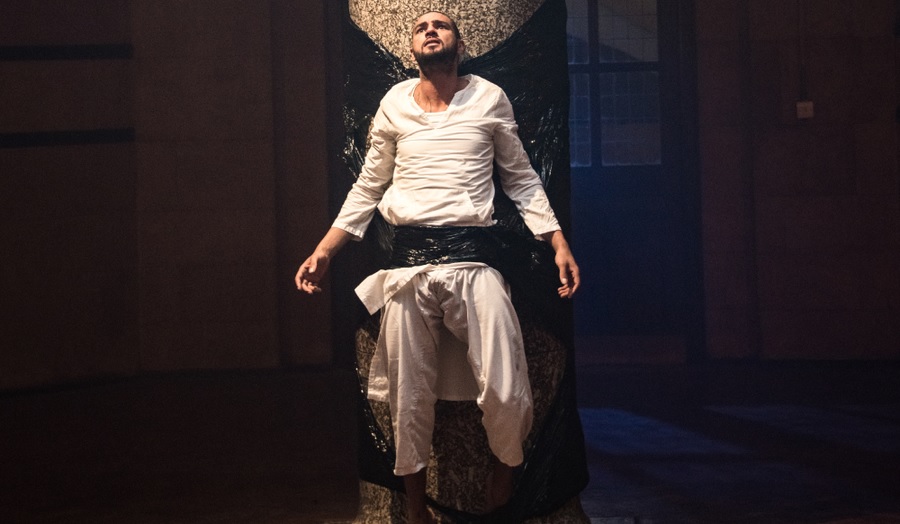
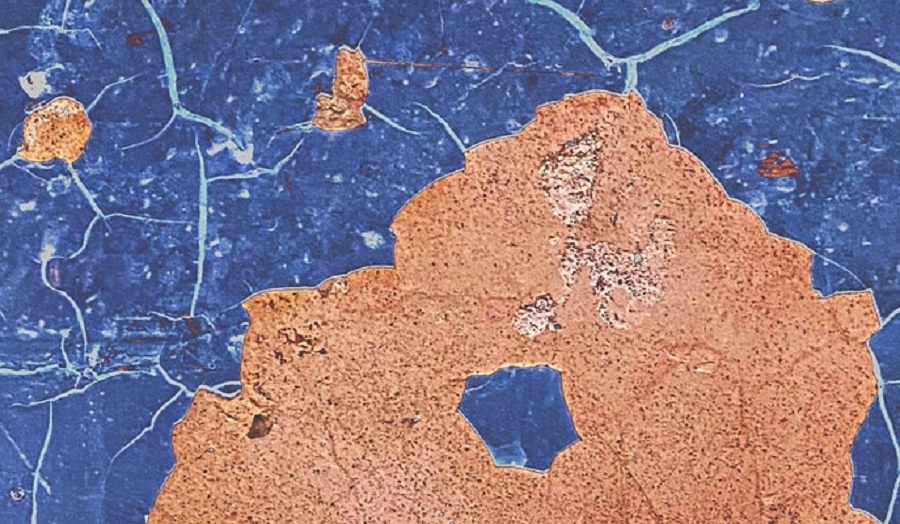
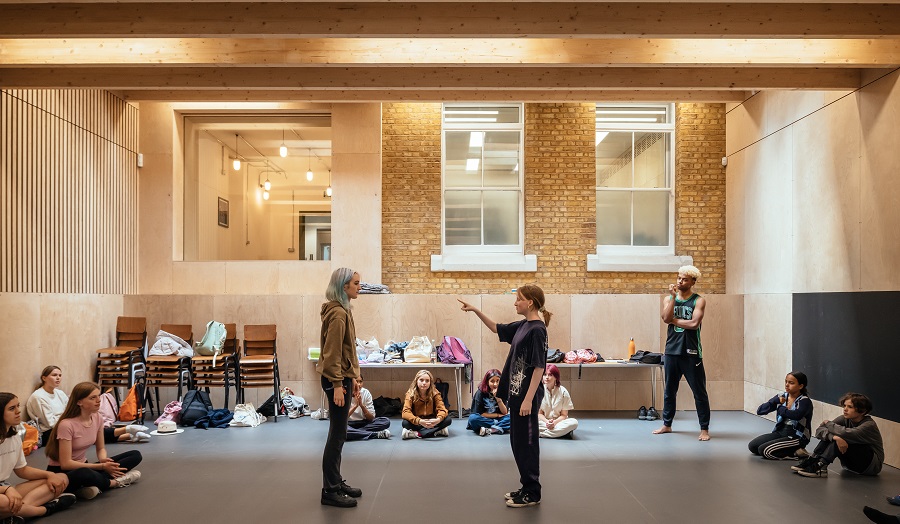
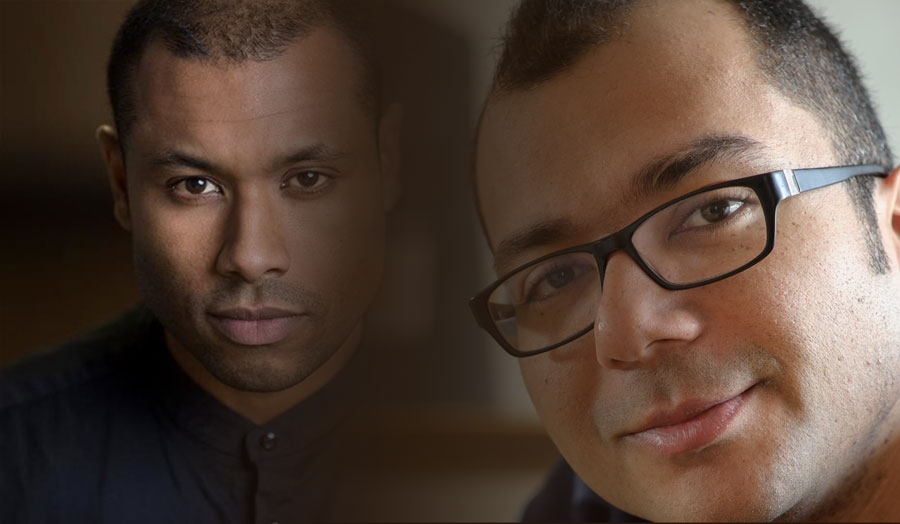
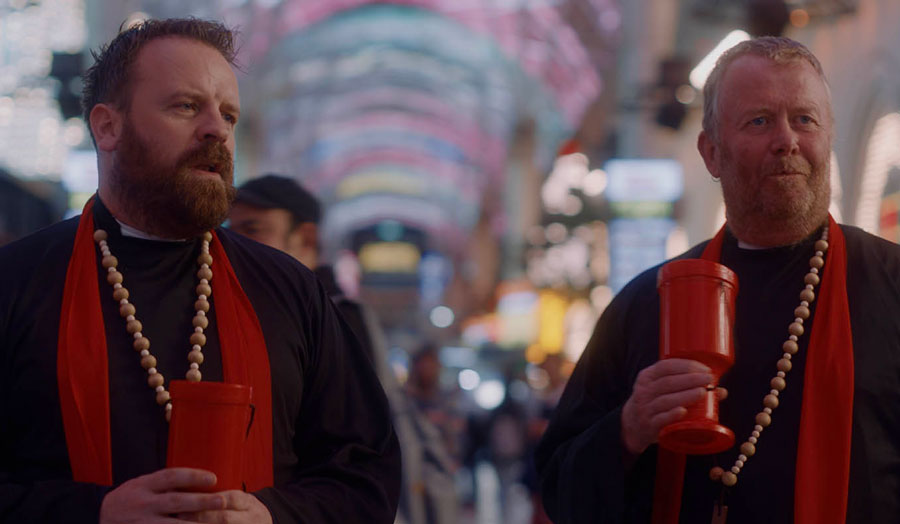
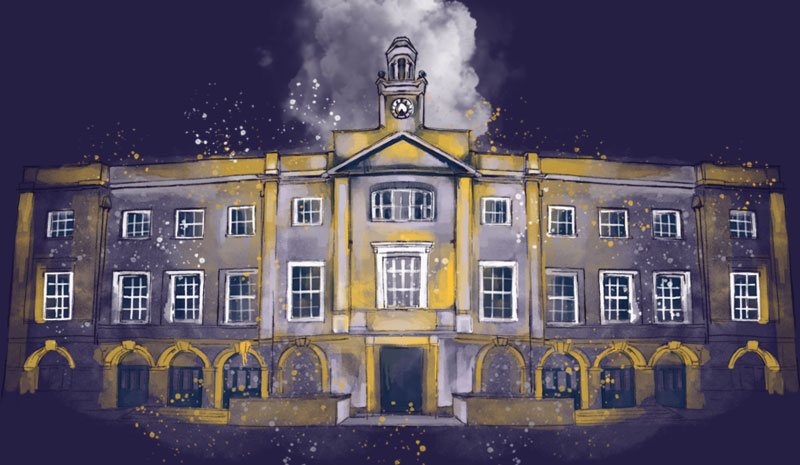
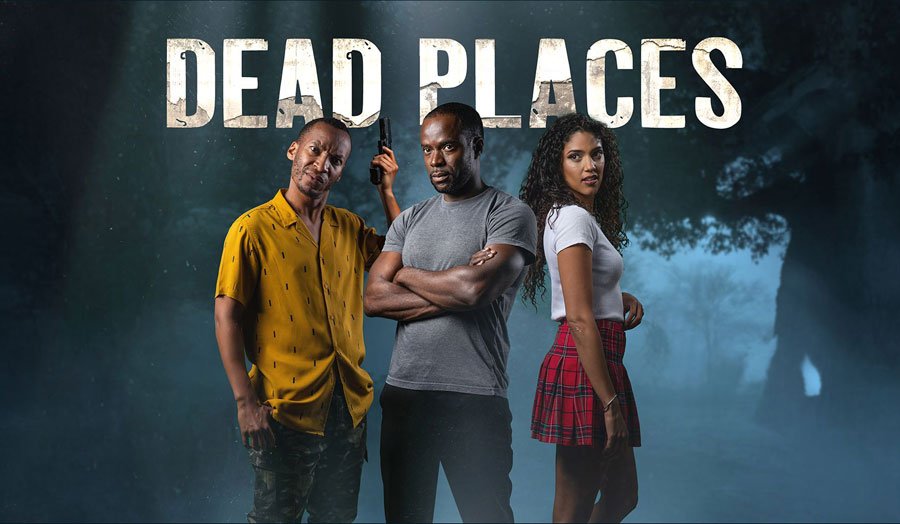
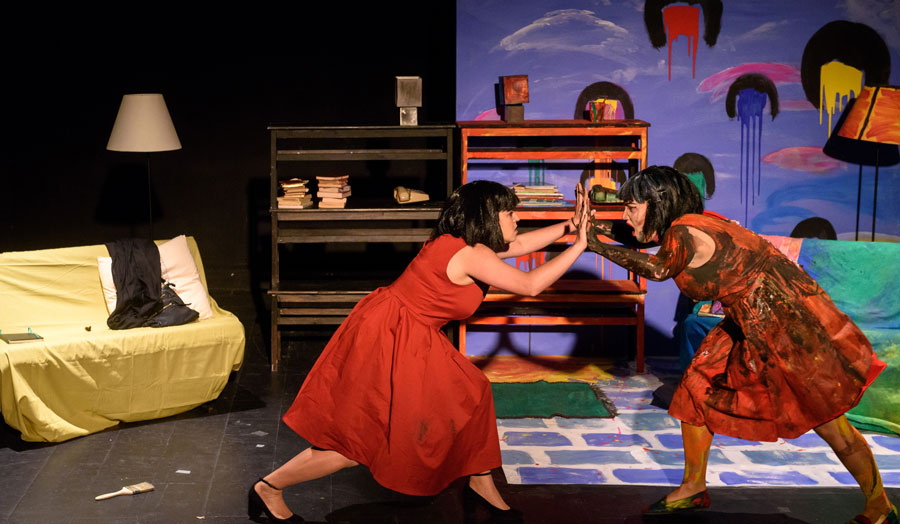
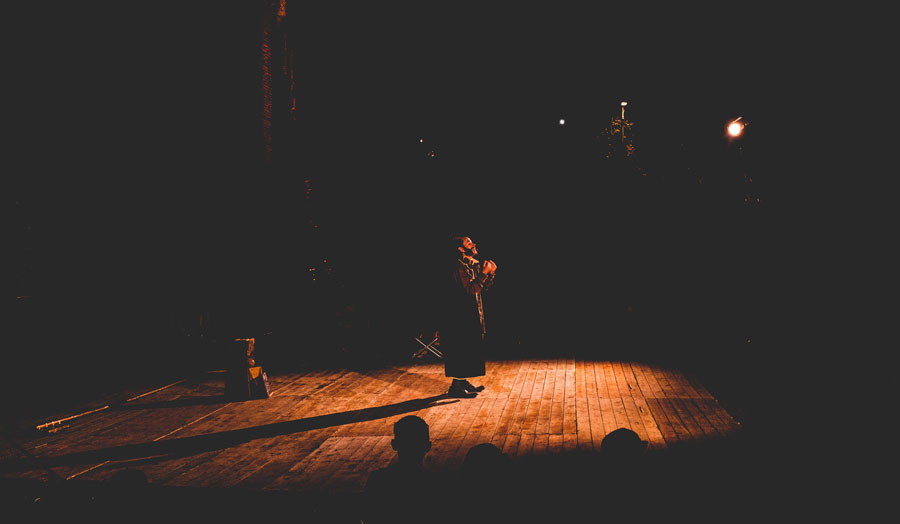
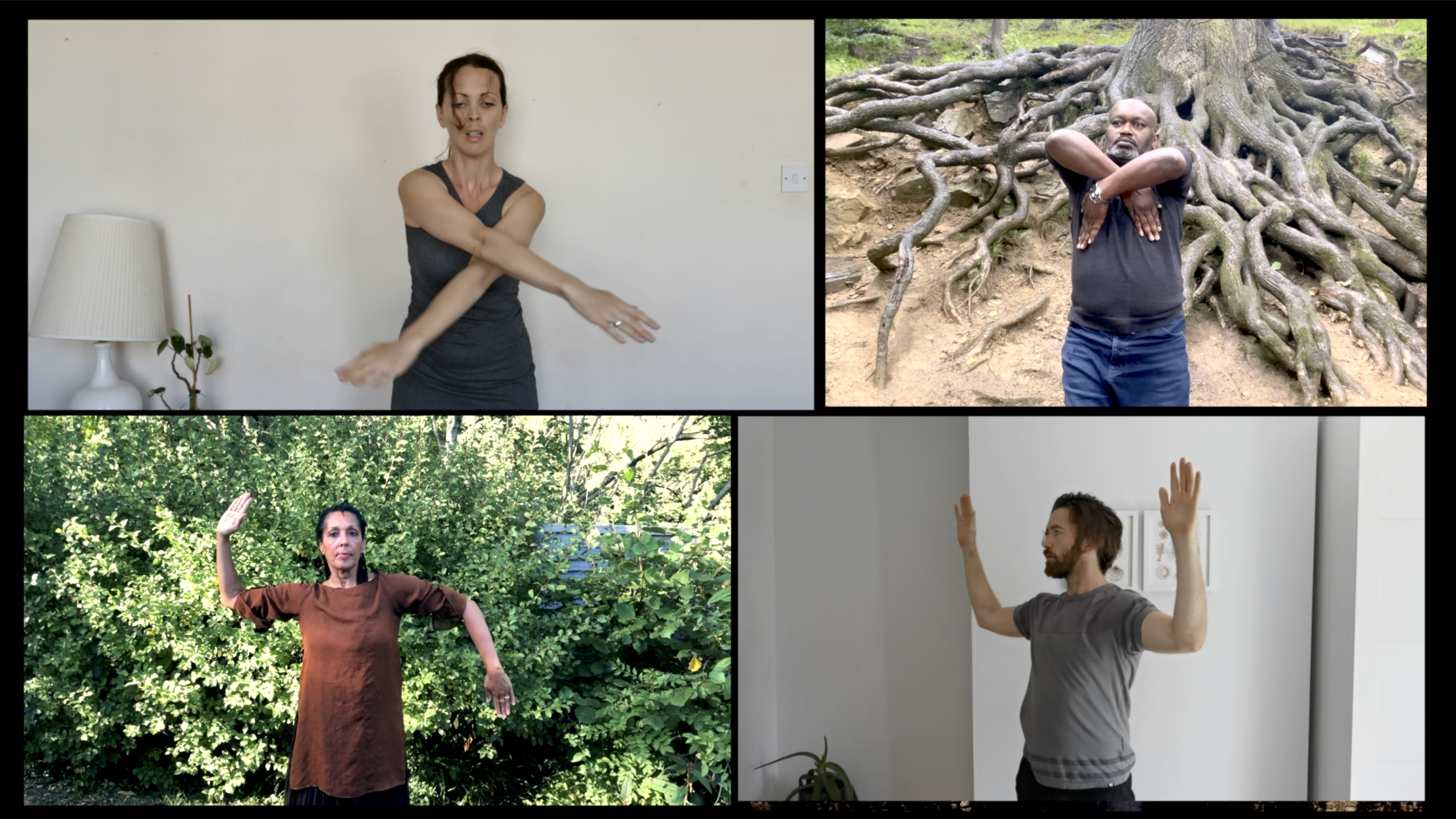
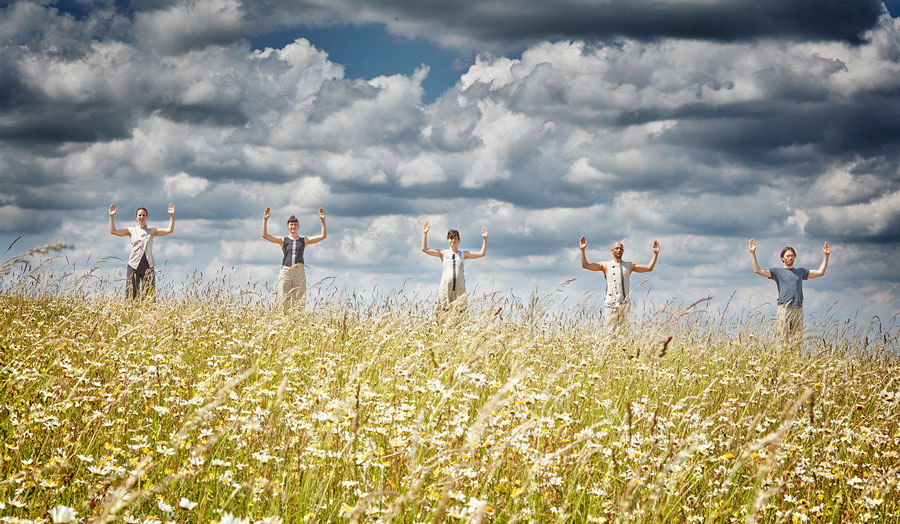
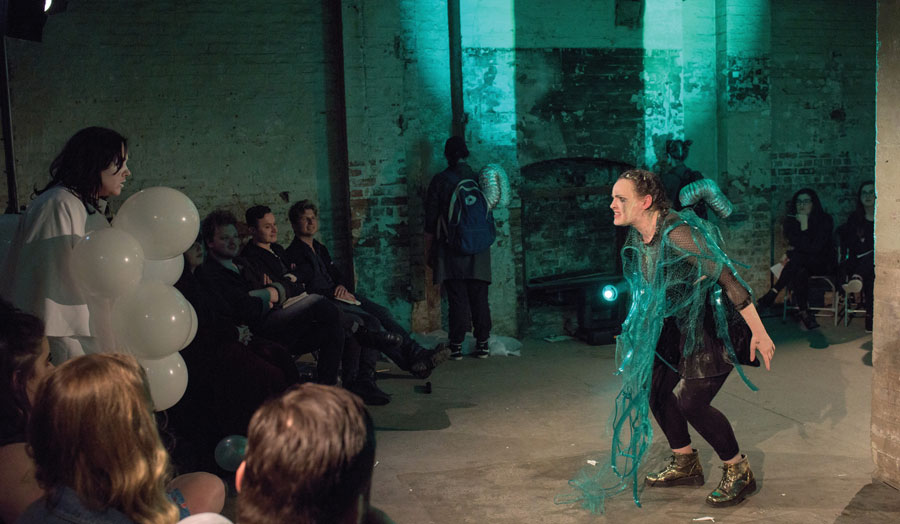
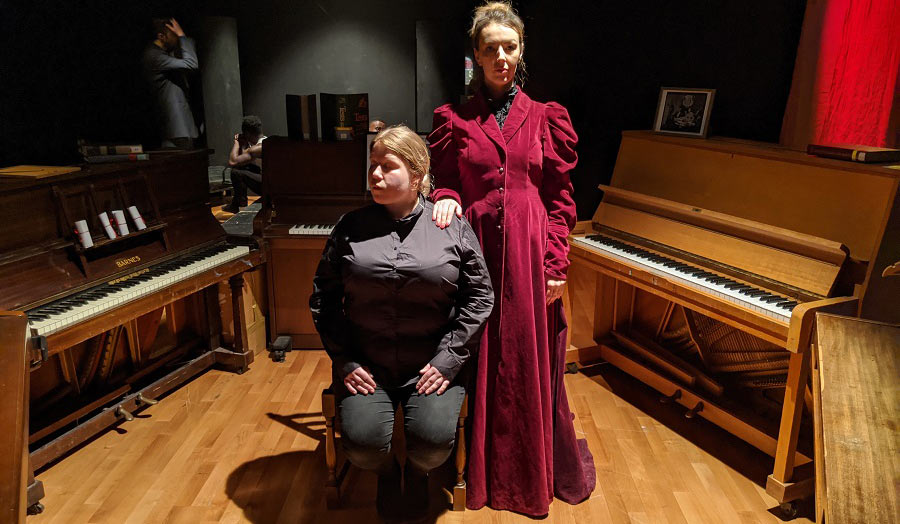
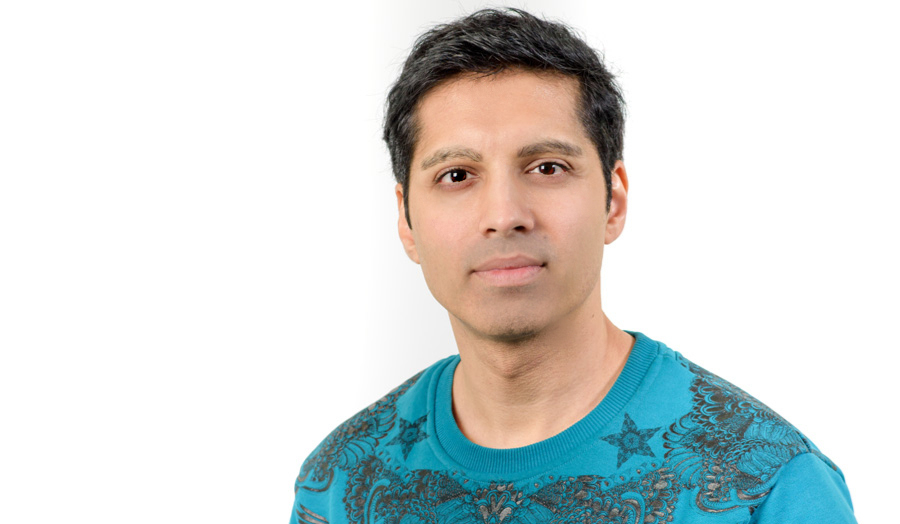

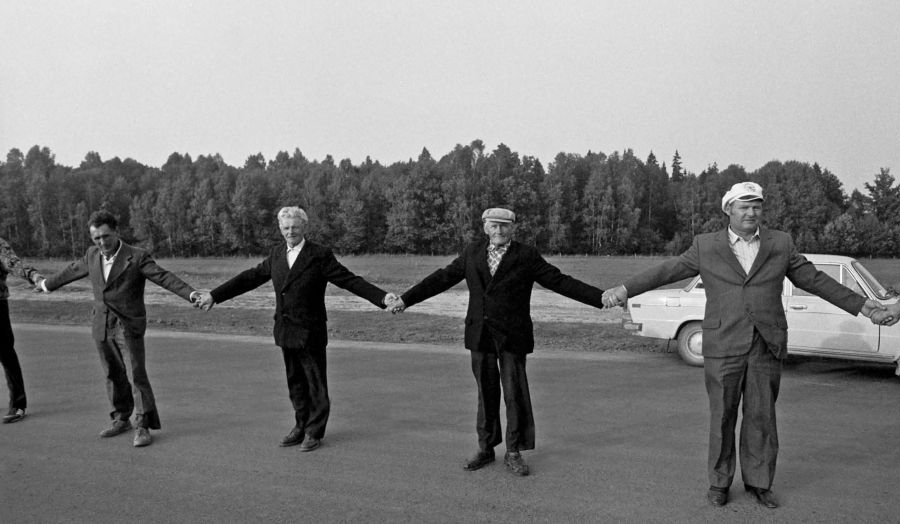
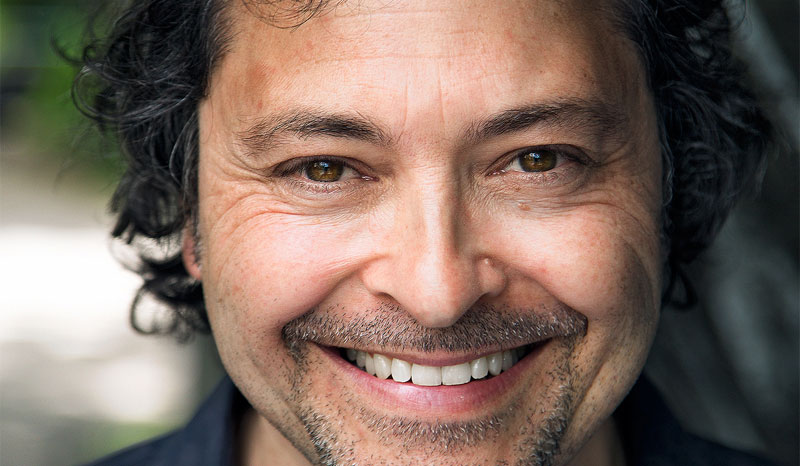
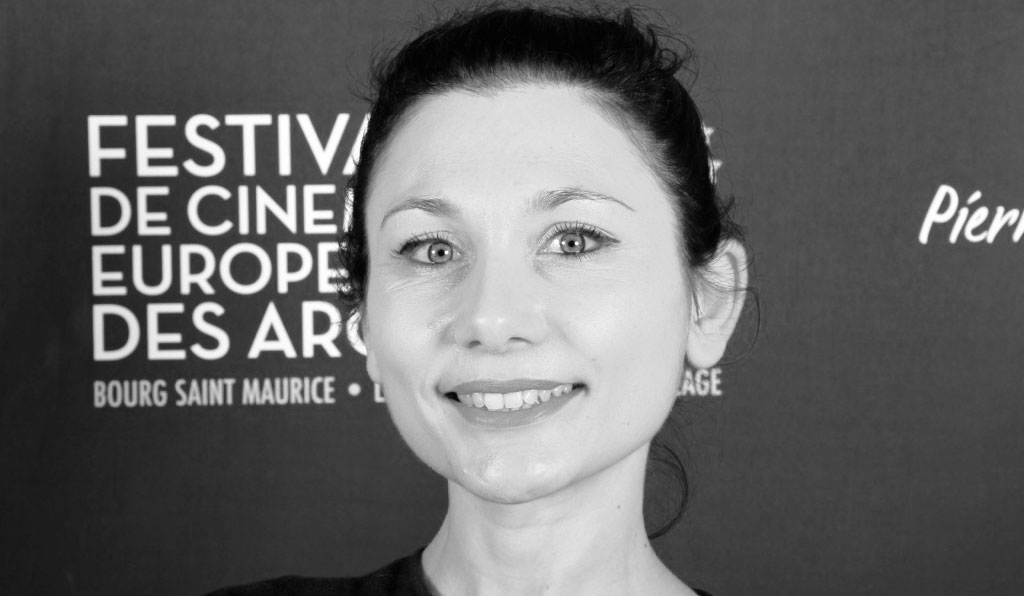
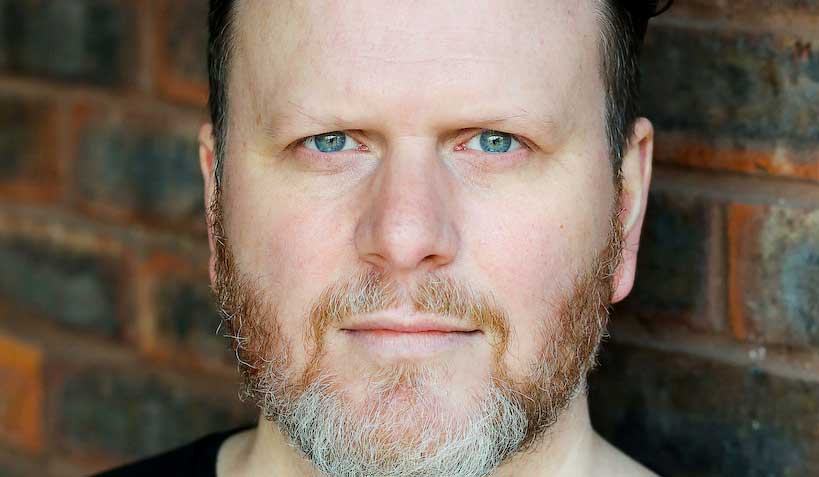
.jpg)
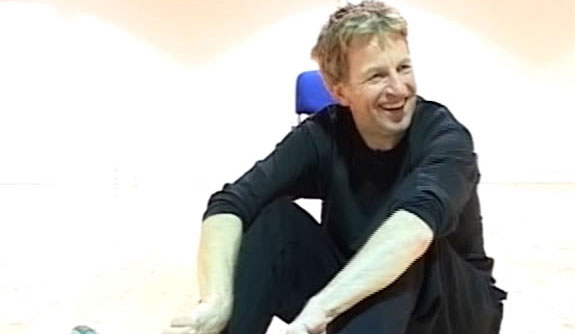
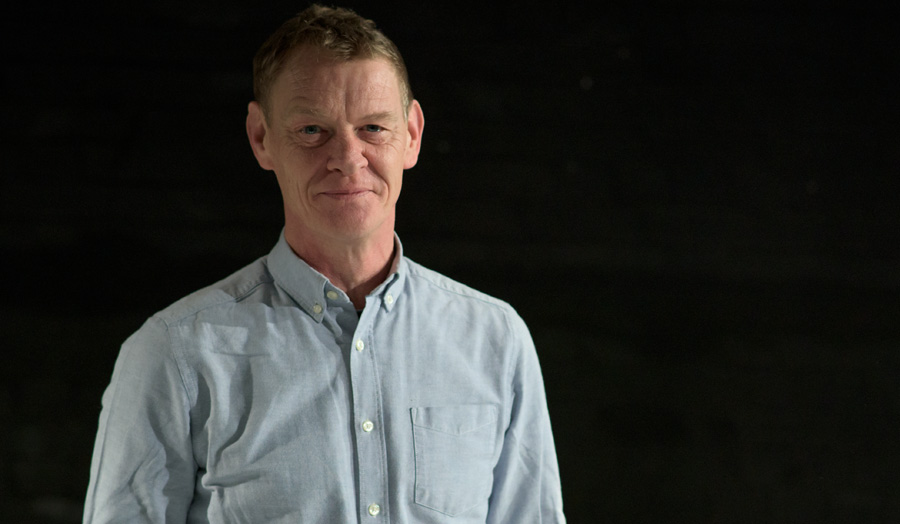
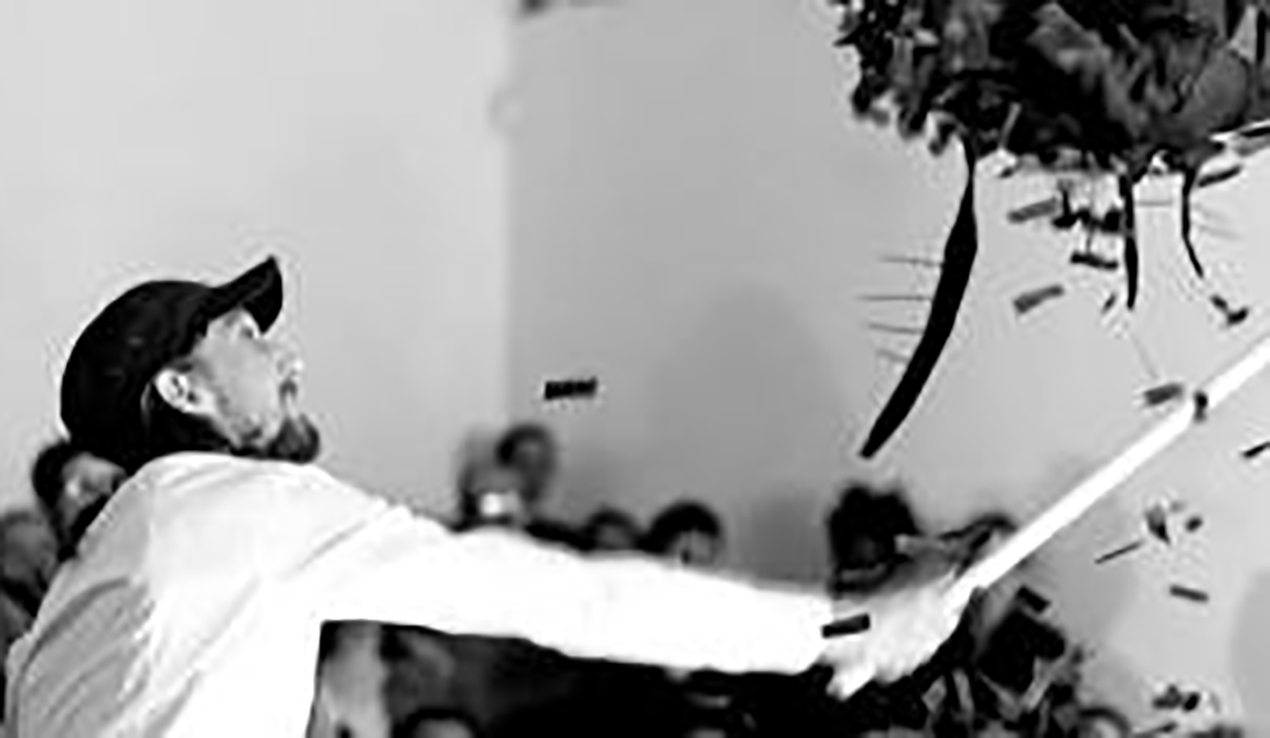
.jpg)
